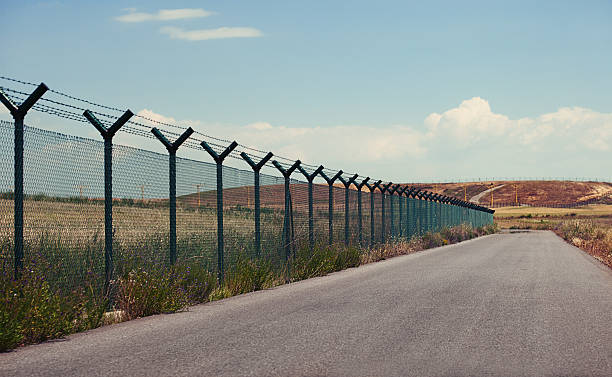Introduction
In the vast expanses of rural landscapes, fencing plays a pivotal role beyond mere property demarcation. It serves as a barrier, protecting crops, livestock, and properties from external threats while maintaining the integrity of the environment. In this article, we delve into the significance of rural fencing and explore the role of professional millwright services in ensuring its effectiveness.
The Essence of Rural Fencing
Preserving Agricultural Assets
One of the primary functions of rural fencing is safeguarding agricultural assets. Farms and ranches rely on fencing to delineate boundaries, preventing livestock from straying onto neighboring properties and safeguarding crops from wildlife intrusion. By creating a barrier, fencing helps maintain the integrity of agricultural operations, promoting efficiency and productivity.
Securing Livestock
Livestock management is a cornerstone of rural economies, and fencing is indispensable in ensuring the safety and containment of animals. Properly constructed fences prevent livestock from wandering onto roads, minimizing the risk of accidents, and protecting them from predators. Additionally, fencing facilitates rotational grazing practices, optimizing pasture utilization and promoting animal health.
Preserving Natural Resources
Rural fencing contributes to environmental conservation by delineating sensitive areas such as waterways, wetlands, and wildlife habitats. Strategic fencing prevents soil erosion, minimizes the impact of grazing on riparian zones, and preserves biodiversity. By respecting natural boundaries, farmers and landowners uphold the delicate balance between agricultural production and environmental stewardship.
The Role of Professional Millwright Services
Expertise in Design and Installation
Professional millwright services specialize in the design, fabrication, and installation of fencing solutions tailored to the unique needs of rural properties. These experts possess the knowledge and experience to assess terrain, soil conditions, and environmental factors, ensuring the implementation of effective fencing systems. From traditional post-and-wire fences to high-tensile electric fencing, millwrights employ cutting-edge techniques to deliver durable and reliable structures.
Quality Craftsmanship
Millwrights adhere to stringent quality standards in every aspect of fencing construction. Utilizing premium materials and precision engineering, they construct fences that withstand the rigors of rural environments, including harsh weather conditions and animal pressure. By prioritizing durability and longevity, professional millwright services offer long-term solutions that minimize maintenance requirements and maximize cost-effectiveness.
Innovative Solutions
In response to evolving agricultural practices and technological advancements, professional millwright services continually innovate to enhance fencing efficiency and performance. They incorporate features such as remote monitoring systems, automatic gates, and solar-powered electrification to optimize functionality and convenience. By embracing innovation, millwrights empower rural landowners to overcome challenges and capitalize on opportunities for growth and sustainability.
Conclusion
Rural fencing is not merely a functional necessity but a cornerstone of agricultural resilience and environmental stewardship. By delineating boundaries, protecting assets, and preserving natural resources, fencing contributes to the sustainability of rural landscapes. Moreover, professional millwright services play a crucial role in ensuring the effectiveness and longevity of fencing systems through expertise, craftsmanship, and innovation. As rural communities navigate the complexities of modern agriculture, investing in quality fencing and leveraging professional millwright services are indispensable strategies for success.
